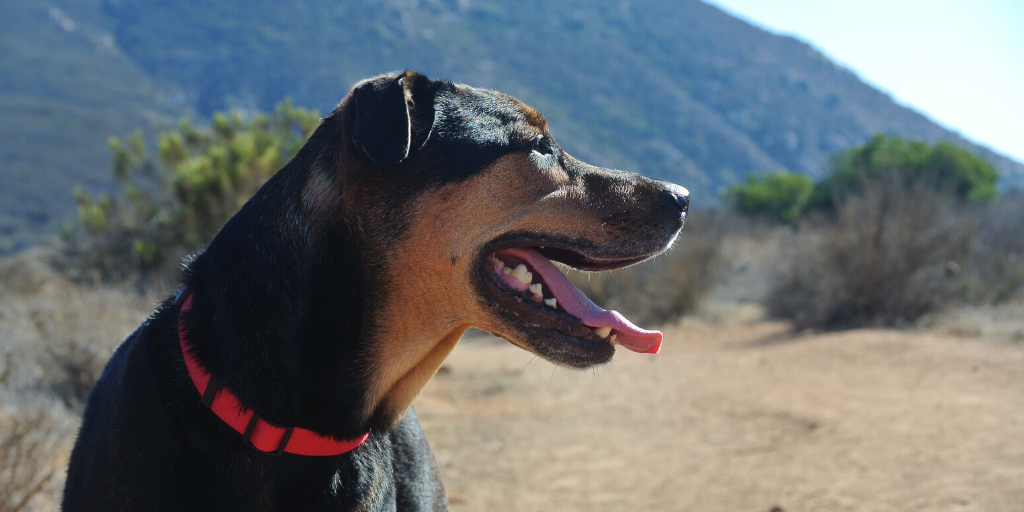Imagine this scenario: you're outside with your dog on a warm day and he or she starts panting. Nothing surprising there because it's pretty common to see a dog panting as a way to cope with hot weather. But did you know that there are also other reasons your dog pants? Here are six common reasons why:
1. To Cool Down
Dogs don't sweat like humans when they're too hot. Instead, they pant. Of course, lots of dogs like to cool off with water - be it in a pool, river, lake, a puddle or even mud. But it's not always possible for them to do so, which is where panting comes in. Panting helps circulate air through your dog's body to keep their temperature down. If you see your dog panting because of the heat, take a break and hydrate or find some shade or somewhere with air conditioning.
Pro Tip: Bring water with you wherever you go, especially when it's hot out, so your dog can have a drink if need be. You can even use the water to cool down your pup by spraying or splashing him or her. You can find our favorite travel water bowl for dogs here.
2. Heat Stroke
If your dog is out in the hot weather for too long, it can lead to heat stroke. Heavy or excessive panting may indicate that your dog is overheated. However, while panting can cool down your dog when he or she is too warm, it won't prevent heat stroke after reaching that point.
Pro Tip: In hot weather, keep your dog with you and avoid being outside for long periods of time. And never leave them alone in the car when it's warm out.
3. Illness
Sometimes, panting can be a sign that your dog is sick. In particular, it could be a respiratory or heart issue. Respiratory disease causes difficulty breathing and clogged sinuses, leading to panting (as well as coughing and sneezing). Heart issues can cause sudden and rapid increases in your dog's heart rate, which results in panting as a way to catch his or her breath. One sign that panting may be more serious is if your dog is panting while resting, so it's advised to see a vet in these cases.
4. Poisoning
Panting can also be a sign of poisoning. Dogs will put almost anything in their mouths and don't always understand what they can or can't eat. This means your dog may accidentally ingest something poisonous, which can cause panting, lethargy and vomiting. Untreated poisoning can be fatal so If you see signs of poisoning, take action immediately. You can call your vet or a poison helpline or you can take your dog to the emergency vet.
Pro Tip: There are lots of things that are harmful to dogs, including many around the house that you may not even realize. Make sure you keep counters clear, lids on trash cans and that all house plants are safe for dogs.
5. Allergies
Dogs can actually suffer from allergies, just like us. And one of the signs they may be suffering from them includes panting. This is because allergies can make it difficult to breathe as your dog's airways become inflamed or constricted. Other signs of allergies include wheezing, itching, irritated skin, hair loss and more.
6. Stress & Anxiety
Your dog may become anxious or afraid at times, which can also lead to panting. Think about when you feel anxious or nervous and how breathing can be difficult (for example, panic attacks are extreme cases of this). Panting is a way for your dog to try and intake more air when they are stressed or scared. So you may notice your dog "stress panting" during thunderstorms, fireworks, other loud noises as well as new or unfamiliar situations.
Pro Tip: There are special "anxiety" dog jackets to help your dog from becoming anxious. Be sure to measure your dog to get the correct fit.

